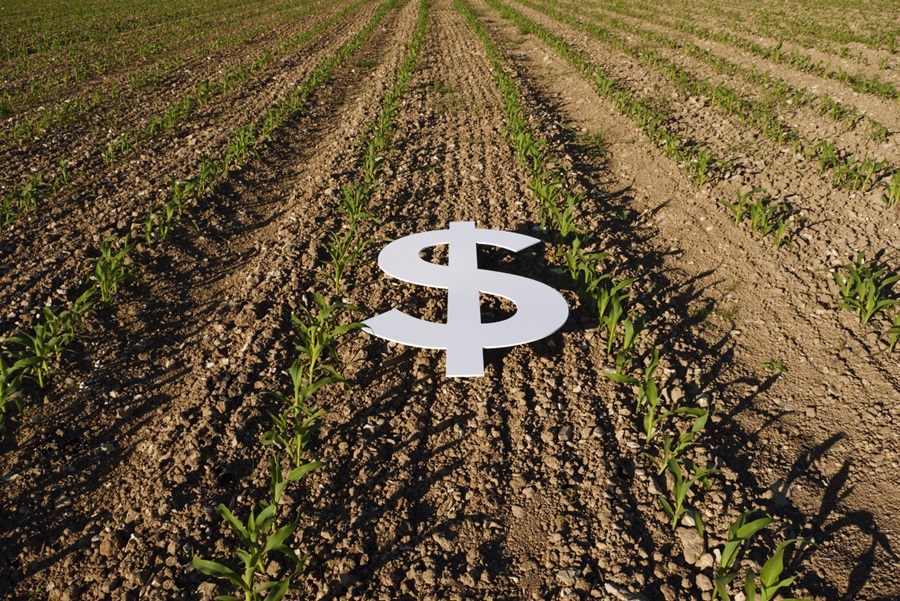Farms are as American as apple pie. Thus, they have become one of American politicians’ favorite businesses. Unsurprisingly, they get tax advantages unavailable to most other businesses. A well-advised farmer should be aware of these advantages, on top of their other governmental subsidies (which have some interplay with farmers’ tax rules). This article gives a high-level overview of these tax advantages.
Access to Special Entity
– Farmers May Use “Exempt” Farmer’s Cooperatives: A cooperative is a special kind of corporation where its shareholders/members receive dividends from the corporation in proportion to the amount of business they transact with the corporation, i.e., their “patronage.” For example, if members jointly manufacture a product, they will be paid patronage dividends in proportion to the amount of contributed labor. Under subchapter T of the Code, all cooperatives may deduct such patronage dividends. Farmer’s cooperatives are unique in that all dividends paid by the cooperative, whether or not a patronage dividend, are generally deductible. This rule makes farmer’s cooperatives a uniquely powerful tool for farmers to band together to sell or purchase product. (As discussed in the Fall 2016 issue of Digital Fruit, the use of cooperatives runs into special issues when using the Internal Revenue Code’s “IC-DISC” sections which favor exporters.)
Special Treatment of Income, Losses, and Certain Transactions of Property
– Three-Year Income Averaging: An individual (including one who is an owner of a farming passthrough entity) engaged in a farming business may elect to average over three years their “elected farm income.” As such, their end-of-year taxable income equals the normal tax on their items except elected farm income, plus the tax computed on the multiyear average of their elected farm income. This can be a helpful way to reduce current year income, if prior years had lower income. (Income averaging was formerly a general feature of the Code, available to all, but this was repealed many years ago.)
– Enhanced Net Operating Loss (NOL) Carrybacks: Unlike the standard two-year carrybacks of most businesses, farmers get three-year NOL carrybacks generally, and special five-year carrybacks in the event of “farming losses.” The amount of farming losses deductible in any year is limited for a farmer receiving certain subsidies.
– Same-Sex Animals May Be Treated as Like-Kind Under §1031: Opposite sex animals, however, are not like-kind. Apparently, this prohibition exists to avoid using like-kind exchanges as a scheme to exchange animals for breeding, and then exchanging them back later.
– Special Gain and Loss Rules for Certain Property: If land held for at least a year is sold with unharvested crops, the sale of the crops is generally eligible for §1231 treatment. (§1231 assets generate capital gains and ordinary losses.) Deductions are disallowed for production of such crops, however. Livestock sales are also eligible for §1231. However, in contrast to these rules and the generally positive treatment of famers, converted wetlands and highly erodible croplands create ordinary income or capital loss on sale.
– Cost-Sharing Conservation Payments Are by Default Not Part of Gross Income.
– Crops Pledged to Secure a Commodity Credit Corporation Loan Can Electively Be Treated as the Sale of Such Crops.
Special Accounting Method and Timing Rules
– Enhanced Ability to Avoid Accrual Method Accounting: Many rules which force taxpayers onto the accrual method do not apply to farmers. However, farming syndicates (i.e., passthroughs whose securities have been registered for sale, those who allocate heavy losses to limited-liability equity holders, or which are classified as tax shelters) are forced to use the accrual method.
– The UNICAP Rules Only Apply to a Narrow Set of Farmers: The uniform capitalization rules (UNICAP) require a large amount of otherwise deductible costs to be capitalized into cost of goods sold. Farmers are required to use UNICAP for production of property that is treated under the accrual method, or with a pre-productive period of more than two years. For non-accrual method farmers, UNICAP does not apply to property with a pre-productive period of more than two years. Further, costs for lost or damaged crops are exempt from the UNICAP rules. A farmer may also elect out of the UNICAP rules for many assets, though this will force the farmer onto straightline depreciation for certain assets.
– Ability to Not Use Inventories, and Special Rules if Inventories are Used: Farmers outside of the UNICAP rules who are not using the accrual method, and those with relatively little gross receipts, do not need to use an inventory method to account for income. If farmers do use inventories, they have some special ways to value their inventory, including the farm price method or unit-livestock-price method.
– Ability to Use Crop Method to Account for Crops: Under this method, crop-related expenses are debited, and crop-related receipts are credited, to a crop account. Income or loss is taken from this account whenever a crop is harvested and disposed of.
– For Cash-Method Farmers, Insurance or Federal Disaster Payments for Damage to Crops May Be Deferred to Tax Year After Receipt.
– Ability for Cash-Method Farmers to Deduct Purchased Animals and Plants Later Sold in Either Year of Purchase or Sale.
Special Deduction Rules
– Costs that Are Automatically Deductible:
- Feed is generally deductible in the year of payment, with some limitations for cash method taxpayers. Prepaid feed can also be deducted, provided it is not being done for tax avoidance.
- Fertilizer and similar costs to enhance farmland are deductible, including (in most cases) costs that will create a benefit of longer than one year. If the costs are capitalized, the costs may be recovered at varying rates.
– Prepaid Costs are Partly Deductible: Generally, deductions for prepaid costs are limited to 50% of deductible expenses which are not prepaid costs.
– Pre-Productive Period Expenses May Be Deducted or Capitalized: A pre-productive period is the period from acquisition of a seed/plant, and the time at which the seed/plant is expected to produce a sellable product.
– Certain Water Conservation and Erosion Prevention Costs are Deductible, If They Would Not Be Depreciable: Additionally, endangered species recovery effort costs are generally deductible.
Outside of the income tax, the Code contains other provisions helpful to farmers, including a credit rebating some of the excise taxes on gasoline and other fuels used by such farmers, as well as allowing for exemption from the highway use tax on heavy motor vehicles. Farmers should always keep a keen eye on other tax credits; certain energy production credits may have been of special interest in years past. Farmers must remember to pay attention to their state and local taxation as well, including their property taxes.
Farmers thus have many tax advantages to enjoy, thanks to the largesse of American politicians. However, this kindness may soon end: farmers should be aware that Republicans have pledged to eliminate most business tax expenditures, which may include some farm benefits. We will know more soon.
—————
Mark E. Mullin practices in the tax department of the Royse Law Firm. He is involved in structuring complex, multijurisdictional, tax-efficient transactions. Mark’s work includes outbound and inbound international tax planning, debt restructurings, tax exempt organizations, and structuring various tax partnerships and LLCs. Article reprinted with permission of the Royse Law Firm.
Thanks for reading CPA Practice Advisor!
Subscribe Already registered? Log In
Need more information? Read the FAQs





